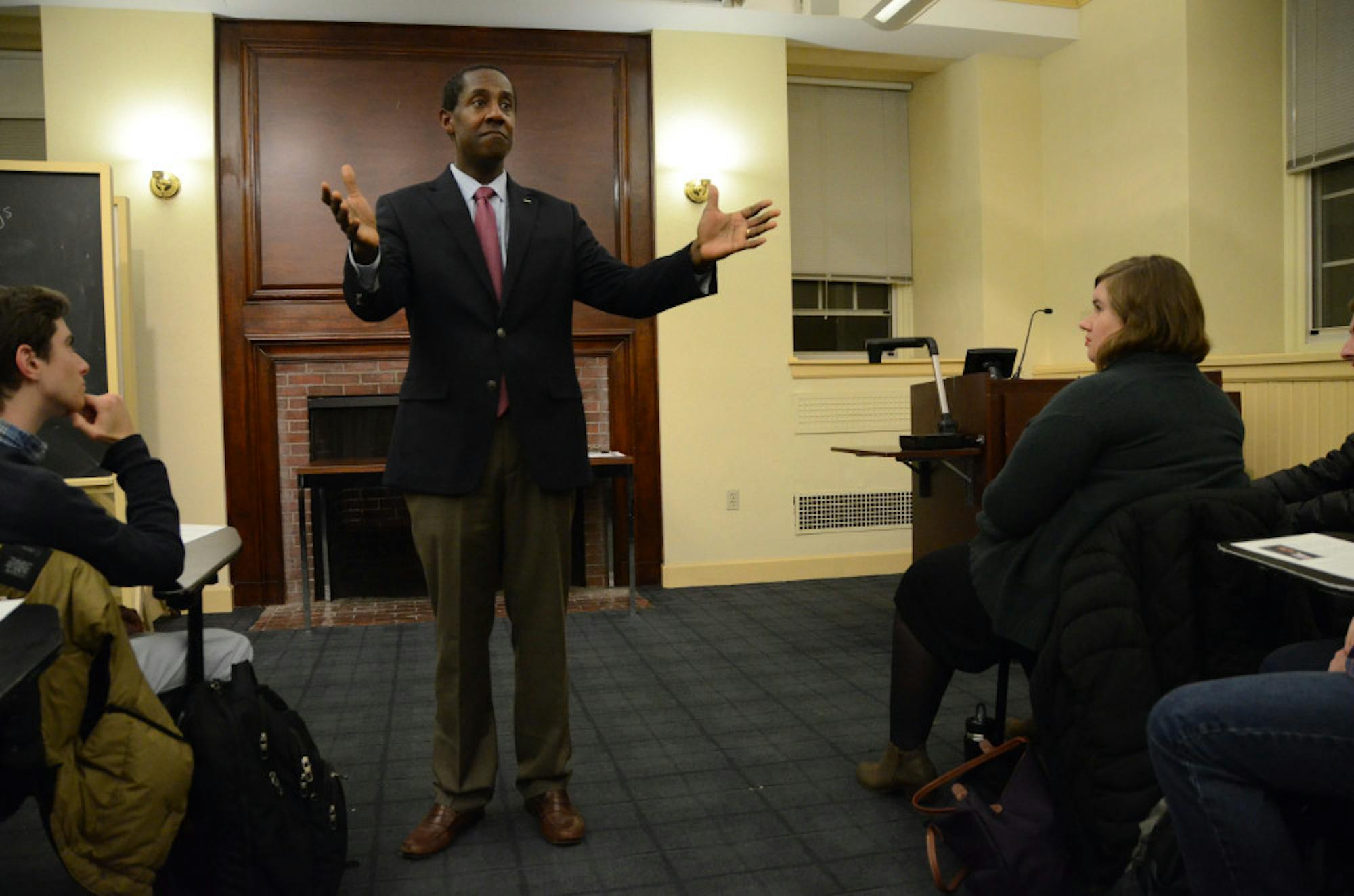Setti Warren, two-term mayor of Newton, spoke about his experience and legacy as a public servant and his goals for state policy at an event on Tuesday night in Paige Hall.
While Warren, who is reportedly considering a run for governor of Massachusetts as a Democrat, has not made an official announcement, he told the Daily that he plans to make the decision "within the next two [to] three months."
The talk, which was hosted by Tufts Democrats and attended by approximately 80 students was followed by a question-and-answer session.
Warren began the talk by describing his career. After returning from military service in Iraq, Warren won his first mayoral election in Newton by only 461 votes in 2009, running against popular longtime State Representative Ruth Balser.
"I made the decision to run because I felt very fortunate to have come home out of a war zone and contribute to my community. When I ran, it was the first elected office I had ever run for," Warren said. "No one said they thought I'd win. I mean, no one. I knocked on 11,000 doors."
He said his priority in his first term as mayor was to improve the city's finances while not forgoing development of outdated infrastructure.
"[I] spent the first four years of my term cleaning up the finances. We were transparent. We worked with unions to put contracts in place that are sustainable," he said. "I went really hard in reducing energy consumption. [Newton] is going to save $40 million over the next 20 years. We have cut [Newton's] carbon footprint in half. So you can ... be [both] environmentally sensitive as well as save money."
Warren also highlighted the fact that he balanced the city's budget and that he built up $20 million in rainy day funds, despite having inherited a deficit when he entered office.
Throughout the talk, Warren described his experience as a two-term mayor who has worked hard to bring people together. He cited a dinner he hosted to which he invited three Trump supporters and three Clinton supporters to have an open discussion on city policy.
He added that he recently worked with Republicans to pass the Welcoming City Ordinance, which prohibits the city's police from arresting or detaining someone solely because of the person's immigration status.
In response to the Safe Communities Act, which would make Massachusetts a sanctuary state, Warren told the Daily in an email, "I think the Welcoming City compromise we came up with in Newton is a better model for what I want to see happen statewide."
Warren ended the talk by stressing that Massachusetts needs leaders who are interested in the everyday lives of the people who are affected by the state's policies.
"There is no reason why the state of Massachusetts can't work with localities. We have ... to create guidelines and state legislation that will protect people who are being governed," he said. "We can do that in Massachusetts. We can lead that. But we need that kind of leadership. We need that kind of governor."
To a student who pointed out that very few Democrats have been elected as Massachusetts governors in recent years, Warren explained that Republicans have traditionally held an advantage in gubernatorial elections because they suggest that they will put a check on the predominantly-Democratic legislature. Yet Warren argued that he is different from the past candidates from his party because he is an "outsider."
Warren later told the Daily that he thinks finding common ground among people is the first step in the policy-making process, and he hopes to use that approach if he were to become governor.
"We must reach out to those people and find that common ground and how we can community-build and solve these difficult problems," Warren said. "We have got to be able to work with one another to change law."
Benjamin Kaplan, president of Tufts Democrats and an intern on Warren's political team, said he admires Warren's legacy as the mayor of Newton and his eagerness to help constituents.
"[Warren's team] helps everyday people by going to where they are and creating policies that allow them to work for a better life," Kaplan said. "I was really impressed with ... what he said about his experience ... how he saved Newton from fiscal crisis without sacrificing important city programs that help everyday people."
Tom Mahoney, a junior who attended the event, said he was impressed by Warren's policy ideas and opinions on the future of the Democratic Party. He also said that should he become a Massachusetts resident, he would be willing to vote for Warren as the governor.
"Mayor Warren laid out a great vision for the future Democratic party. I thought he brought up really good points about just how to improve Massachusetts in general ... he was very persuasive, very engaging, and I thought he did a really good job," Mahoney said. "[Warren] said a lot of things I believe in ... I would be willing to vote for him."
Newton mayor, governor hopeful discusses his state policy vision

Setti Warren, the mayor of Newton, gives a talk about his public life and his vision on state policy in Terrace Room on March 7.





